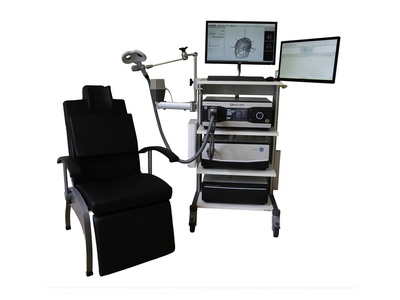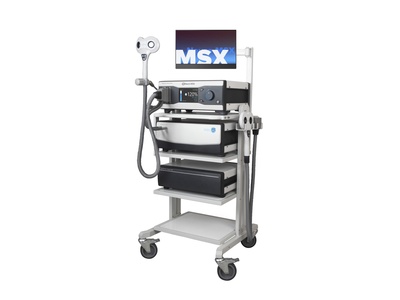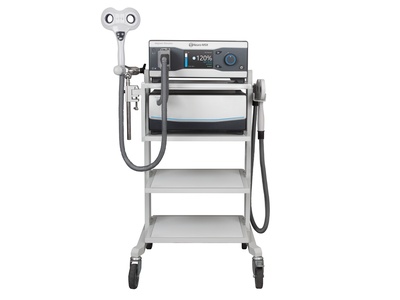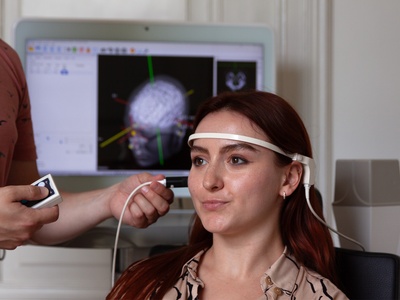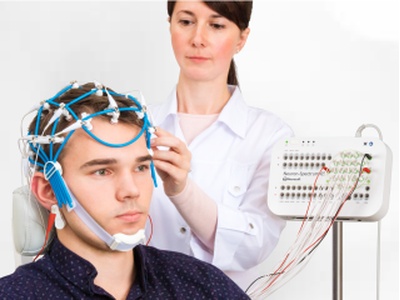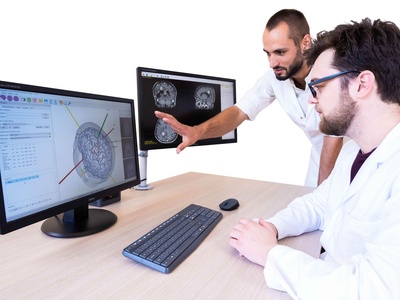Navigated rTMS treatment
Repetitive Transcranial Magnetic Stimulation (rTMS) in combination with MRI guided neuronavigation can be used in psychiatry for the treatment of a variety of disorders such as depression (MDD), obsessive compulsive disorder (OCD) and dysthymic disorder. Patients suffering from MDD or OCD who are resistant to pharmacotherapy have been treated successfully with (navigated) rTMS. Standard rTMS protocols for stimulation of the targeted brain area are available for both applications. We offer rTMS machines and MRI guided neuronavigation (Neural Navigator) separately as well as a complete solution (package) for research and clinical treatment. The complete solution is CE certified for medical use in the EU and FDA cleared for clinical use in the USA.
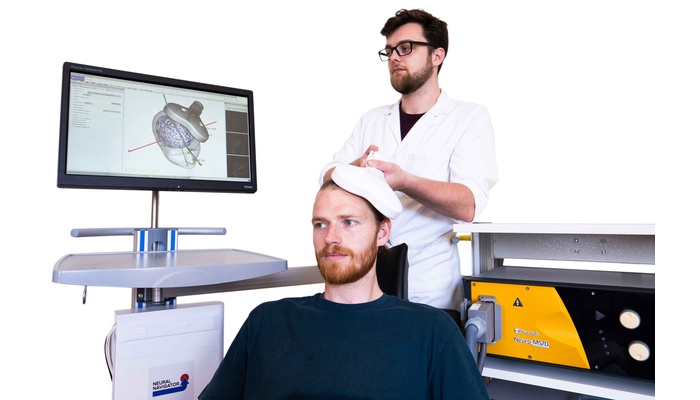
Reproducible coil placement using MNI
The neural navigator supports accurate reproduction of TMS coil positions using an MNI template. Similar to the standard navigation procedure, facial landmarks of the MNI template are captured on the participant's head. Next, the neural navigator adjusts the MNI template based on the geometry of the participant's head. MNI targets, …
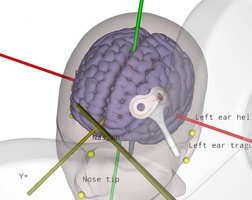
Added value of MRI-guided neuronavigation
Transcranial Magnetic Stimulation (TMS) requires accurate placement of the TMS coil over the targeted brain area. Conventional placement methods in TMS are based merely on external landmarks of the head (5 cm rule, 10-20 EEG). This leads to inaccuracies in targeting of this brain area and herewith to suboptimal results …
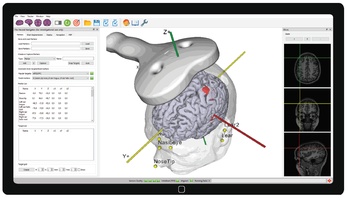
Treatment of Major Depressive Disorder
MDD, also referred to as clinical depression, is a significant medical condition that can affect many areas of life. MDD is one of the most common mental disorders, 1 out of 6 adults experiences depression. Standard treatment of MDD is medication and psychotherapy. However, about a third of patients with …
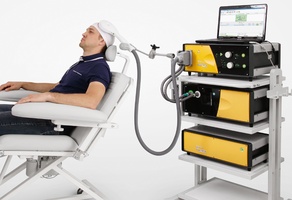
Transcranial Magnetic Stimulation in OCD
Obsessive-compulsive disorder (OCD) is a disorder characterized by uncontrollable, recurring thoughts and behaviors. About 2% to 3% of people experience OCD, yet standard treatment such as medicine or exposure therapy achieves (partial) response in only 40% - 60% of the patients. In May 2019 a new treatment was approved by …
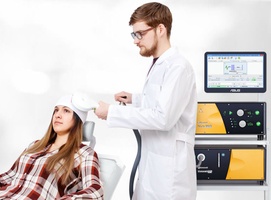
Theta burst stimulation (TBS)
rTMS treatment protocols continue to be investigated and improved. New patterned rTMS protocols, where short high frequency trains of TMS pulses are are interleaved with really short breaks, are referred to as Theta Burst Stimulation (TBS), intermittent TBS (iTBS) and continues TBS (cTBS) with frequencies up to 100Hz for the …
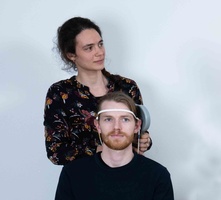
rTMS treatment in stroke rehabilitation
Stroke patients are often left with impairment of the upper limbs, even after intensive rehabilitation of upper limb function. The impairment of the upper limb is associated with disrupted activity within the brain's motor network. The disrupted activity is characterized by reduced activity in the affected motor cortex, which causes …

